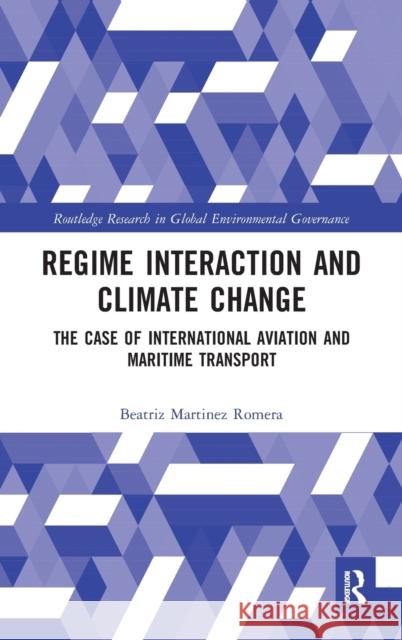Regime Interaction and Climate Change: The Case of International Aviation and Maritime Transport » książka
Regime Interaction and Climate Change: The Case of International Aviation and Maritime Transport
ISBN-13: 9781138211902 / Angielski / Twarda / 2017 / 268 str.
Regime Interaction and Climate Change: The Case of International Aviation and Maritime Transport
ISBN-13: 9781138211902 / Angielski / Twarda / 2017 / 268 str.
(netto: 673,60 VAT: 5%)
Najniższa cena z 30 dni: 654,86
ok. 22 dni roboczych.
Darmowa dostawa!
Climate change is a global challenge that cuts across all aspects of our society and deliberations over how much, and in what way, greenhouse gas emissions (GHG) should be reduced are still at the core of international climate negotiations. However, GHG emissions resulting from the use of international bunker fuels (IBF) in the international aviation and maritime industries have remained mostly unregulated. Article 2.2 of the Kyoto Protocol excluded both of these sectors from its targets, delegating to the International Maritime Organization (IMO) and the International Civil Aviation Organization (ICAO) the negotiation of sector-specific regulations to reduce emissions. Unfortunately, both organizations have failed to agree on the adoption of meaningful measures. This book explores the law-making process for the regulation of IBF through the lenses of international law and regime interaction. It sheds light on how interaction between the United Nations Framework Convention on Climate Change (UNFCCC), ICAO and IMO regimes occurs, the consequences of such interaction and how they can be managed to resolve conflict and promote synergy. After mapping out the legal frameworks in the three selected regimes, the author proposes various legal solutions and puts forward policy recommendations to move the regulation of IBF out of a stalemate situation. This book will be of great interest to scholars of international environmental law and governance, climate change policy and climate change law.











